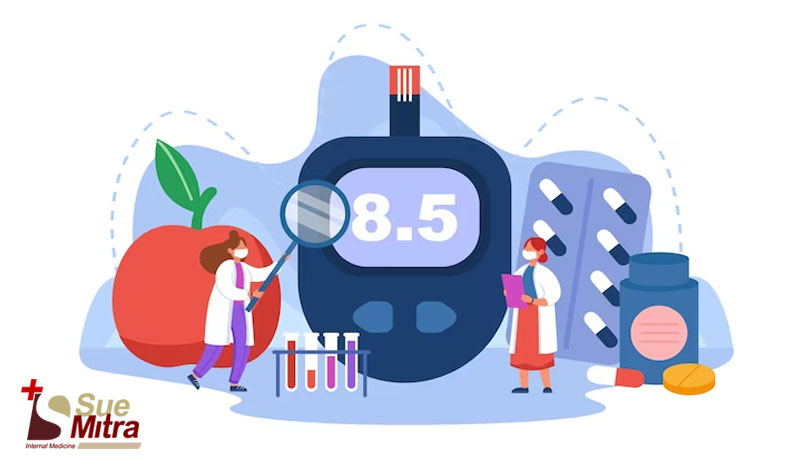
15, Jan 2024
Overview
This comprehensive guide on diabetes and metabolic screening aims to provide readers with a thorough understanding of these health aspects. It is divided into following sections, each covering a specific aspect related to diabetes and metabolic screening.
1. What is Diabetes?
This section provides an introduction to diabetes, explaining what it is, its types (type 1, type 2, gestational diabetes), symptoms, causes, and risk factors.
2. Diabetes Prevention
Here, readers will learn about various strategies to prevent or delay the onset of diabetes. This includes adopting a healthy lifestyle, maintaining a balanced diet, engaging in regular physical activity, and managing weight.
3. Diabetic Diet and Nutrition
This section focuses on diet and nutrition recommendations for individuals with diabetes. It covers meal planning, carbohydrate counting, glycemic index, and healthy food choices.
4. Exercise and Physical Activity
Readers will find information on the importance of exercise and physical activity for managing diabetes. This section includes recommended types of exercises, duration, frequency, and tips for staying motivated.
5. Insulin and Medications
As diabetes often requires medication management, this section provides an overview of insulin and other medications commonly used. It explains the different types of insulin, their administration methods, and potential side effects.
6. Monitoring Blood Sugar Levels
In this section, readers will learn about the importance of monitoring blood sugar levels for individuals with diabetes. It covers different types of glucose monitoring devices, how to use them, and target blood sugar ranges for optimal diabetes management.
7. Complications of Diabetes
This section delves into the potential complications that can arise from uncontrolled diabetes. It covers both short-term complications (hypoglycemia and hyperglycemia) and long-term complications (heart disease, stroke, kidney disease, nerve damage, and eye problems).
8. Metabolic Screening
Here, readers will find information on metabolic screening, which involves assessing various health markers such as cholesterol levels, blood pressure, and blood glucose levels. It explains the importance of metabolic screening, when it should be done, and what tests are typically involved.
9. Risk Factors for Diabetes and Metabolic Disorders
This section explores the different risk factors that can increase the likelihood of developing diabetes and other metabolic disorders. It covers both modifiable risk factors (such as diet, physical activity, and weight) and non-modifiable risk factors (such as age, genetics, and family history).
10. Healthy Lifestyle Tips for Diabetes and Metabolic Health
The final section provides readers with practical tips and suggestions on maintaining a healthy lifestyle to support diabetes management and overall metabolic health. It includes advice on meal planning, exercise, stress management, sleep habits, and maintaining a support network.
Conclusion:
This comprehensive guide provides readers with a detailed understanding of diabetes and metabolic screening. It covers topics such as prevention, diet and nutrition, exercise, medication management, blood sugar monitoring, complications, metabolic screening, risk factors, and healthy lifestyle tips. By following the information and recommendations provided in this guide, individuals can take control of their health and effectively manage their diabetes and metabolic health.
Dr. Sue Mitra and her staff strive to offer their patients the best care, advice and services available in the medical field with the goal to keep patient healthy & happy.

Dr. Sue Mitra is board certified in international medicine. She is seen here with a Cologuard, which is a noninvasive colon cancer screening test. (Photo by: Tim Shortt/Florida Today)